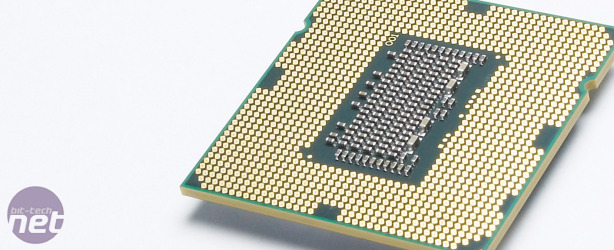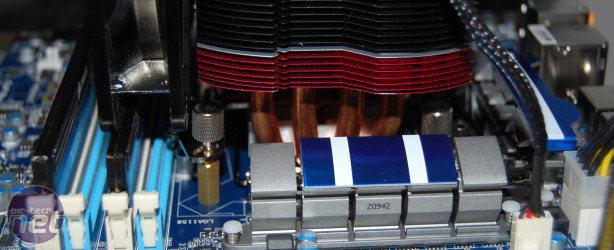
Results Analysis
All three of our test CPUs flew through our tests, especially when overclocked, but there were some significant differences in specific applications.The 6-core X6 1090T BE fared well in heavily multi-threaded tests, as at stock speeds it was the fastest CPU of the three in WPrime and only fractionally slower than the i7-875K, which sat at the top of the pile in Cinebench. We were expecting this though, as the brute force of the Phenom II X6-series always delivers good performance in these tests.
The i7-875K beat the i7-930 in both these tests. This is due not only to the fact that the i7-875K has a nominal 126MHz frequency advantage over the i7-930, but its Turbo Boost technology also works better and can automatically overclock the CPU further in most cases.
Our test games gave the i7-875K a chance to shine, with the higher, and Turbo Boosted, clock speed making it the fastest CPU on test at stock speeds in Crysis, though only by 1fps. This lead grew slightly in our X3: Terran Conflict, with the average frame rate of the i7-875K 10 fps higher than the i7-930.

The i7-875K sits in that uncomfortable position at the top of the LGA1156 hierarchy. Click to enlarge.
The superiority of the LGA1366 setup soon showed though, and its triple-channel memory gave it the edge in our Media Benchmarks - the i7-930 scored 1,674 overall compared to the 1,662 of the i7-875K and the 1,367 of the X6 1090T BE.
Overclocked Performance Analysis
As we mentioned earlier, we managed to overclock the i7-875K to 4.2GHz, which represents a healthy 1.2GHz improvement over stock speeds. We were also able to overclock the i7-930 from 2.8GHz to 4.3GHz, and the X6 1090T BE from 3.2GHz to 3.87GHz. These overclocks boosted performance significantly.At 4.2GHz, the i7-875 tore through our tests. It pulled ahead of the 1090T in both WPrime and Cinebench, but was beaten by the incredibly overclockable i7-930. This result very much set the tone for the rest of our tests; the i7-930 achieved the best scores, with the i7-875K taking second place and the 1090T BE trailing in third.
The only test in which this trend was reversed was in Crysis, where the i7-875 outperformed the i7-930 by 4fps, which is a fair margin.
Order was resumed in our Media Benchmarks though, where the i7-875K returned a respectable score of 2,124 - a significant 28 per cent increase on its stock results. Respectable doesn’t cut it with the i7-930 though, and its epic overall score of 2,328 is bordering on the obscene; represents an awesome 39 per cent improvement over its stock-speed result.

Our trusty test Titan Fenrir did the business again, and allowed us to apply a 1.2GHz overclock to the i7-875K. Click to enlarge.
Conclusion
We're uncertain as to why Intel has released the Core i5-655K and Core i7-875K. Its chips are already incredibly overclockable and unlocking the multiplier does little to change this, while also potentially eroding its Extreme Edition brand.By using the multiplier of a CPU to overclock it, you reduce the strain of an overclock on the motherboard, but you'll still need to apply extra CPU voltage, meaning that you can't take the cheap option in your choice of motherboard even when overclocking via the multiplier.
The nail in the coffin for the i7-875K is that it's more expensive than the i7-930, even though it uses the inferior LGA1156 packaging. The i7-875K is very quick, but an i7-930 system is more prestigious and better value for money
If you want a high-performance CPU that costs more than £200, and you're not scared of overclocking, the i7-930 is the best CPU. As a bonus, you can spend the money you save on the CPU on an LGA1366 motherboard and 6GB of memory.
- Performance
- x
- x
- x
- x
- x
- x
- x
- x
- x
- -
- 9/10
- Value
- x
- x
- x
- x
- x
- x
- -
- -
- -
- -
- 6/10
- Overall
- x
- x
- x
- x
- x
- x
- x
- -
- -
- -
- 7/10

MSI MPG Velox 100R Chassis Review
October 14 2021 | 15:04








Want to comment? Please log in.